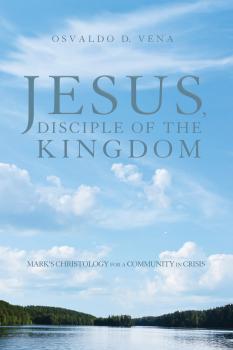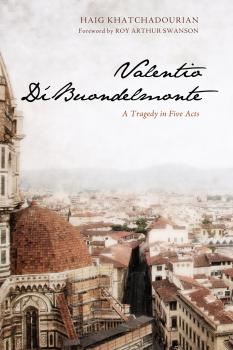Between the Monk and the Dragon
A sixteen-year-old girl named Elspeth wakes one night to find a hatchling dragon in her father's bed. Elspeth's father, a hunter named John Fletcher, tells her she's had a bad dream, one she must not tell anyone about. Things deteriorate. The dragon reappears, each time growing in size and potency. As this happens, her father becomes increasingly angry, then violent. This is the story of their journey into family violence, and then out again. A monk at the local monastery, Constantine, a man who has had his own firsthand experience of violence, facilitates the outward journey. But within his care there lurks another danger: Constantine has a dragon of his own. It is a titanic struggle between forces both within and without. As she struggles with the other characters and with the dragon, Elspeth must learn the difficult lesson that forgiveness is the path to her own healing.
Jesus, Disciple of the Kingdom
That Jesus started his career as a disciple of John the Baptist is an idea that has gained almost universal recognition in the scholarly world. His coming from Galilee to be baptized by John in the river Jordan is the most compelling proof of Jesus' subordination to John. But quickly after John was executed Jesus started his own career, not as a disciple anymore, but as a teacher in his own right. In this book Osvaldo Vena makes the claim that throughout his ministry Jesus remained a disciple, not of John, but of a higher power, God, and God's kingdom. Thus, Jesus called men and women to join him as co-disciples as he went about proclaiming the nearness of the kingdom through word and action.
In this work Vena contends that in the Gospel of Mark, Jesus is presented as a prototype of true and faithful discipleship, a model to be followed and imitated by ancient as well as contemporary believers. This presentation amounts to an emerging Christology espoused by the early Markan community on the verge of destruction from outside forces, specifically the Jewish-Roman war, as well as internal divisions resulting from struggles for power in the community.
Parables of Parenthood
Jesus told simple stories about common items; yet his parables profoundly address our hearts and minds. We offer an interpretation, not only about what we read, but also what we think and feel. Parables of Parenthood presents modern biblical scholarship in an accessible writing style in order to model how these ancient stories continue to enrich life in the twenty-first century. Andrew Taylor-Troutman closely analyzes each parable with deep appreciation before applying these interpretations to his life, because he believes the genius of the parables offers a glimpse of the kingdom of heaven in our everyday experience. By interpreting from the author's head and heart, Parables of Parenthood gives new luster to well-known, narrative gems about sowing seeds and lost sheep through personal insights about anxiety and hope. Lessons about wise builders and wicked tenants are illustrated with anecdotes about a baby's food and a grandmother's rocking chair. Through interpretations of other parables, moments as diverse as a beach trip and an ultrasound appointment invite movement from fear to faith. Through the combination of his informed Bible study and practical life experience, Taylor-Troutman empowers readers to connect the teachings of Jesus to our world in comforting and challenging ways.
Valentio Di’Buondelmonte
Valentio Di' Buondelmonte is a Tragedy in Five Acts, in two Parts, based on tragic historical events in Florence, Italy, in 1215 A.D. Part I consists of the Tragedy in Elizabethan English, in blank verse; Part II consists of the Tragedy in modern English, in free verse.
Sex, Sin, and Our Selves
Sex, Sin, and Our Selves brings together readings in feminist theological thought and the literature of the acclaimed contemporary writers Michele Roberts and Sara Maitland. Through placing theology in conversation with Roberts's and Maitland's literary engagement with issues of religion and gender, this book explores themes of selfhood, connection, sex, sin, and self-sacrifice. In doing so, it challenges a tendency of feminist theology to seek simple and idealized answers, rather than honor complexity and the need to continue to ask questions. In the encounters in feminist theology and contemporary women's writing, Anna Fisk employs autobiographical narrative, critically understood as «reading these stories beside my own.»
Heresy
It is early in the fourth century AD, and Christianity has become a religion in search of a theology. Roman persecution has ended, but doctrinal debates threaten to tear the church apart as the early church fathers strive to solve a mystery inherited from their apostolic tradition: how both Father and Son might be thought of as God, and yet as distinct, without doing violence to the tenet that God is One.
Enter Arius, a Libyan priest who comes to Alexandria to preach an answer: that the Son of God is a created being of a different substance than the Father, and not fully divine. When the Archbishop condemns his teachings and banishes him from the city, Arius' local apostacy expands into a worldwide schism as bishops and clergy throughout the Mediterranean world take sides. Desperate to use the religion as a force for political unity, the Christian emperor Constantine calls a convention of bishops at Nicaea to resolve the dispute. As debate begins, a consensus answer seems out of reach–until a young Alexandrian deacon presses a solution that will forever shape orthodoxy in a different direction.
King Saul
King Saul is based on the Biblical story of the first king of Israel. It retells the story in a fresh way, offering new looks at the three major characters–Saul, Samuel, and David–and the events that brought them together at the very foundation of the nation of Israel three millennia ago. Holbert's retelling reveals how this old story is surprisingly modern as it turns its gaze on power politics, personal rivalries, and religious use and abuse as the life of early Israel unfolds.
The Christian’s Highest Good
Competing worldviews cast their impact on the church and the Christian confession. What does it mean to be a Christian in an age that threatens cultural dissolution? Related questions press on a calm consideration of the meaning of the Christian life. Who is Jesus Christ of whose salvific work the Christian confession depends? Why did Jesus Christ come into the world? What is to be said of the human condition following the Adamic fall, which, as John Milton says, «brought death into the world and all our woe»? What is the Christian's highest good, the grounds on which it has life-determining relevance, and what are its existential implications? In this closely reasoned and biblically informed examination of those questions, Douglas Vickers concludes that the Christian's highest good exists in «fellowship with the Father.» The practical and everyday significance of that fellowship is addressed at length, and the meaning and prospect of each Christian's eternal life is shown to be grounded in a vital and indissoluble union with Christ.
The Perspective of Love
While many of the Reformers considered natural law unproblematic, many Protestants consider natural law a «Catholic thing,» and not persuasive. Natural law, it is thought, competes with the Gospel, overlooks the centrality of Christ, posits a domain of pure nature, and overlooks the noetic effects of sin. This «Protestant Prejudice,» however strong, overlooks developments in contemporary natural law quite capable and willing to incorporate the usual objections into natural law. While the natural law itself is universal and invariant, theories about the natural law vary widely. The Protestant Prejudice may respond to natural law understood from within the modes of common sense and classical metaphysics, but largely overlooks contemporary natural law beginning from the first-person account of subjectivity and practical reason. Consequently, the sophisticated thought of John Paul II, Martin Rhonheimer, Germain Grisez, and John Finnis is overlooked. Further, the work of Bernard Lonergan allows for a natural law admitting of noetic sin, eagerly incorporating grace, community, the limits of history, a real but limited autonomy, and the centrality of Christ in a natural law that is both graced and natural.
Beyond Me
Beyond Me seeks to capture and convey the wonder, mystery, and healing power of the Divine Spirit and its activity in human beings, life, and relationships. This Divine Presence is often felt or glimpsed as Mystery–beyond us, yet within us–which grabs our attention and pulls us into a deeper and fuller exploration of what life and human existence is all about. As an ordained Presbyterian minister serving as a Pastoral Psychotherapist, Carroll E. Arkema is especially thrilled and fascinated to notice and then capture in his poems the congruency between psychodynamics, spiritual growth, and scriptural stories. His interdisciplinary perspective illuminates the complexity of the divine/human relationship, tracing how people change, heal, and are sanctified, while also resisting such change and growth. Personal experiences and scriptural accounts throw light on each other, and Arkema shows poetry to be a format capable of holding and integrating both.









